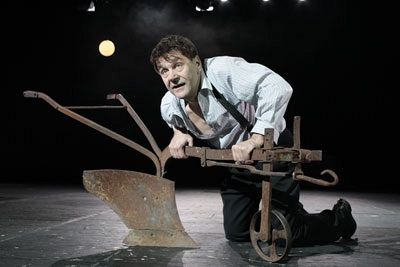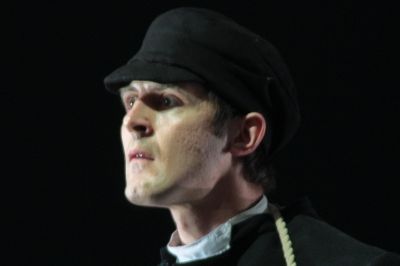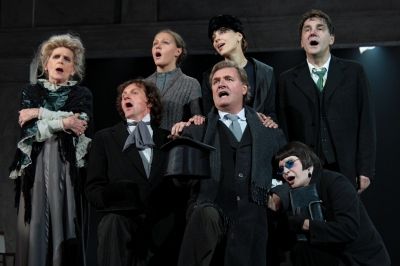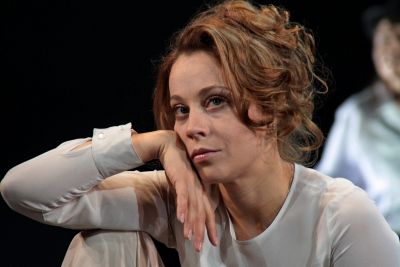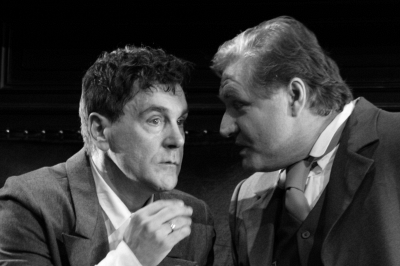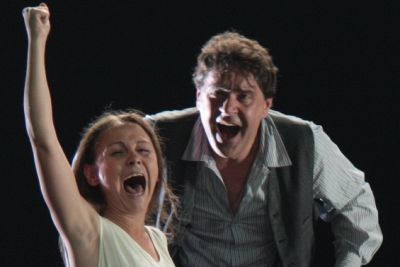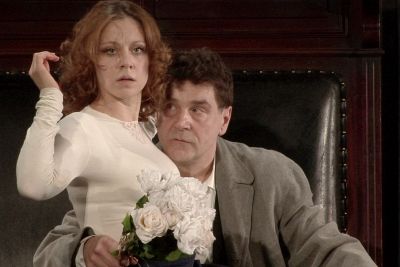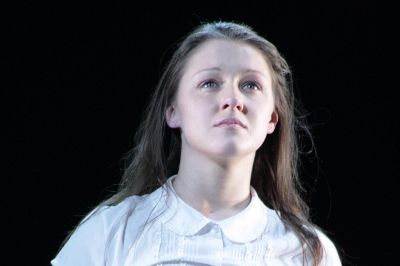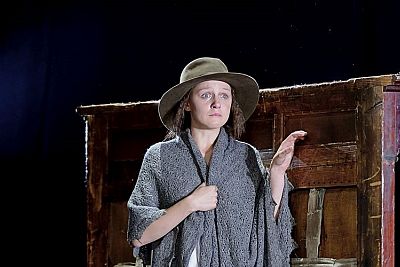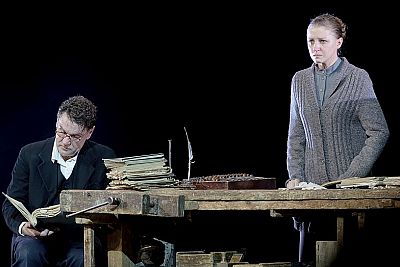The premiere: September 2, 2009
I discovered Chekhov’s drama when I was a third year student at the Vilnus Conservatoire (productions of y his plays Lithuania were rare and far between). And instantly I had that odd feeling that I was a pioneer who had discovered a brilliant, yet generally unknown playwright. My decision to become a director stemmed largely fr om the desire to stage Chekhov <...>
In this sense it wouldn’t be such an overstatement to say that I’ve been staging Chekhov all my life. I first put on “Uncle Vanya” in Vilnus with my graduate students from the Department of Acting back twenty years ago. Since then I have been staging this play in theatres around the world. I even once compared it to a folk song that one feels like singing over and over again. And now when I am beginning the work on “Uncle Vanya” at the Vakhtangov Theatre I’m becoming increasingly aware that there is still lots of things to be discovered in this play and that the characters appear to be different from what I thought they were earlier. The dialogue Chekhov engages in with the modern times is amazingly complex. It is no less amazing to see the company that has for a long time been labeled ‘anti-Chekhovian’ reveal its best qualities precisely in a production of Chekhov’s play.
Rimas Tuminas
Everything is put together in the best way. Harmony is achieved owing to sufficiency of all the components. In this production Tuminas demonstrates tough directorial style in the spirit of traditional Lithuanian directing with its tight concepts, odd perversions, irrational behavior of characters on stage and absurd allegories.
And yet this “Uncle Vanya” perfectly exemplifies ‘the actor’s theatre’ wh ere the action follows the actor’s thinking while depending entirely on the temperament of the director. One is aware of the director’s dictate but at the sane time it is an assembly of superbly constructed performances of the actors, the latter being perhaps the rarest component of the modern theatre.
Pavel Rudnev, «Chastny Correspondent»
What is so astounding about Sergei Makovetsky appearing as Voynitsky? Perhaps of all the people who play characters, colorful and showy, he is the most bona fide and natural. His Uncle Vanya allows himself the ‘luxury’ of being unpretentious and stooping, slack and sleepy, trusting and indulgent and yet invariably honest before himself and people around him. <...>
His low-voiced and yet poignant monologues as he, feeling all alone, perches himself in a chair in the middle of the front stage are addressed somewhere high into the air. Actually his quiet melancholy bespeaks of acceptance of this dull life that can be livened up only by changing ties and occasional carousels with ‘tough guy’ Astrov.
Maria Khalizeva, «Ekran I Scena»
… All this macabre grotesque is gushing only to set off two small and ridiculous human figures – Uncle Vanya and Sonya. Sergei Makovetsky and Maria Berdinskikh are not acting out the history of a hopeless life. Their characters look like Lilliputians in the land of giants. They are quite unaware that their genuine sufferings are the only way to live a descent life. This unawares produces the main tragic connotations of the production. After speaking her famous monologue about ‘diamonds in the sky’ Sonya removes the glasses from Uncle Vanya’s nose, makes him open his eyes, stretches out his mouth into a blissful smile, he starts moving backwards like in a rewound film, back into the depths of the time and one has the feeling that with his disappearance the world will come tumbling down and monsters will start crawling out from all cracks.
Maria Sedykh, «Itogi»
With support of Ministry of Culture of Russian Federation
